Ready to turn your data into intelligent insights? The world is developing at a fast rate, and learning this powerful ability is now easier than ever. But where do you start when there are so many options for online courses? This article will walk you through the best machine learning course on udemy and Coursera to help you select the ideal machine learning course to get you started with artificial intelligence.
We’ll look at classes that meet all skill levels, whether you’re a total novice or want to hone your current expertise. We’ll examine the advantages of each platform, taking into account elements such as the general curriculum structure, project-based learning opportunities, and instructor expertise. So grab a seat, and get set to learn about the best machine learning course on udemy and Coursera that will enable you to reach your greatest potential!
This Best Courses Guide (BCG) allows you to learn from the top paid and free courses provided by major companies (Google, Microsoft, Kaggle, DataCamp) and top colleges (MIT, Stanford, University of London).
Let’s Learn What is Machine Learning? and check the Top Courses online
If you want to learn any other course Like PHP So you can refer this course
What is Machine Learning? Let's check it
When it comes to computers, learning typically entails following instructions. However, machine learning changes everything! This is a form of artificial intelligence in which computers may independently become more proficient at tasks through data analysis. Imagine presenting a computer with a large number of images of dogs and cats, then asking it to categorize further images. With each new image, the computer would get more adept at sorting by recognizing patterns in the photos, such as cats’ whiskered faces and dogs’ pointed ears. This is only a taste of the fascinating field of machine learning; in the following part, we’ll delve deeper and recommend some of the best machine learning course on udemy and Coursera
How much Machine Learning is Difficult to Learn?
At first, machine learning may seem intimidating. It makes sense that you might wonder if it’s a good fit for you because it incorporates ideas from computer science, statistics, and arithmetic. There is a way for everyone, which is wonderful news! Numerous online courses simplify difficult subjects into digestible chunks; some even concentrate on the real-world applications without getting too technical. So, there is a course out there that may help you understand the principles of machine learning, regardless of your level of experience with coding. Recall that even the most accomplished data scientists had their beginnings, and that was possible with the correct tools. Machine Learning is Difficult but best machine learning course on udemy and Coursera are trying to make easy this course (such as those we’ll look at next)!
5 Best Machine Learning Courses on Coursera that you should learn in 2024
- Machine Learning Basics
- Machine Learning with Python
- Machine Learning on Google Cloud Specialization
- Machine Learning: Algorithms in the Real World Specialization
- Advanced Machine Learning on Google Cloud Specialization
Let's Dive into the Courses
1. Machine Learning Basics
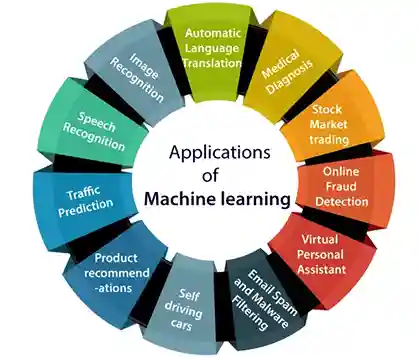
Course Modules
3 Hours to complete
What’s Include:
3 Videos 3 Readings 3 Quizzes
2 Hours to complete
What’s Include:
3 Videos 3 Readings 3 Quizzes
3 Hours to complete
what’s Include:
3 Videos 3 Readings 3 Quizzes
4 Hours to complete
What Include:
3 Videos 3 Readings 4 Quizzes
Course Description
In this course, you will:
a) understand the basic concepts of machine learning.
b) understand a typical memory-based method, the K nearest neighbor method.
c) understand linear regression.
d) understand model analysis.
Please make sure that you’re comfortable programming in Python and have a basic knowledge of mathematics including matrix multiplications, and conditional probability than the best machine learning course on udemy and Coursera is right for you.
2. Machine Learning with Python

Course Requirements
Recommended experience: Intermediate level
A working knowledge of Python and Data Analysis and Visualization techniques. A minimum of high school math. if you are weak in python programing so you can refer this course
Skills you'll gain
- Machine Learning
- Regression
- Hierarchical Clustering
- Classification
- SciPy and Scikit-learn
Course Modules
54 Minuets to complete
What’s Include:
5 Videos 2 Quizzes
2 Hours to complete
What’s Include:
5 Videos 3 Readings 2 Quizzes 2 app items
4 Hours to complete
what’s Include:
5 Videos 1 Readings 2 Quizzes 5 app items
2 Hours to complete
What Include:
4 Videos 1 Readings 2 Quizzes 3 app items
2 Hours to complete
What Include:
3 Videos 2 Quizzes 1 app items
2 Hours to complete
What Include:
3 Readings 1 Quizzes 1 Peer review 1 app items
Course Description
Get ready to discover the world of machine learning (ML), with Python! If you want to advance in data science or begin a career in machine learning or deep learning than this course is for you.
In the first part of the course, we will receive a brief explanation of Machine Learning. This involves basic regression, linear and non-linear regression, supervised vs unsupervised learning as well as more. In the next part of the class, we will learn about how to classify things with many techniques including decision trees, logistic regression and K-Nearest Neighbors (KNN). Additionally, it is necessary for us to understand clustering and its various.
There will be a lot of topics you learn, thus experiential learning will be heavily stressed. Working with Python packages like as SciPy and scikit-learn, you will apply what you learn in the laboratories. As part of the final assignment, you will create, assess, and contrast multiple machine learning models using various methods to show off your talents.
3. Machine Learning on Google Cloud Specialization
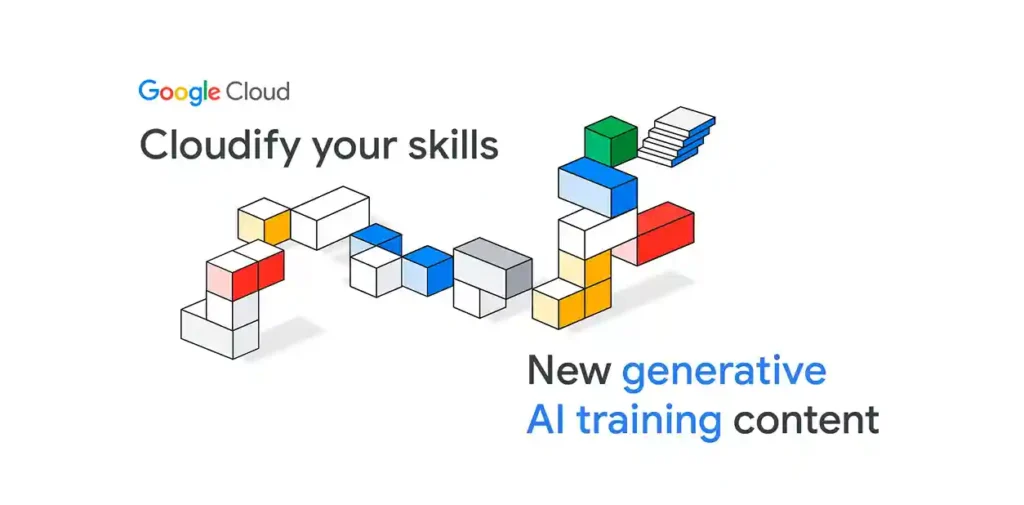
- To create, train, and implement ML models, use Vertex AI AutoML with BigQuery ML.
- Apply machine learning models with TensorFlow 2.x and Keras.
- Use machine learning in your company’s best practices.
- Explain the process of enhancing data quality and conducting exploratory data analysis.
Course Modules
11 Hours to complete
What’s Include:
Articulate Responsible AI best practices
14 Hours to complete
What’s Include:
Optimize and evaluate models using loss functions and performance metrics
13 Hours to complete
what’s Include:
Train, deploy, and productionalize ML models at scale with Vertex AI.
8 Hours to complete
What Include:
Perform feature engineering using Big Query ML, Keras, and Tensor Flow.
18 Hours to complete
What Include:
implement Vertex Vizier Hyperparameter Tuning
Course Description
In this course you will learn What is machine learning, and what kinds of problems can it solve? How can you build, train, and deploy machine learning models at scale without writing a single line of code? When should you use automated machine learning or custom training?
This best machine learning course on udemy and Coursera teaches you how to build Vertex AI AutoML models without writing a single line of code; build BigQuery ML models knowing basic SQL; create Vertex AI custom training jobs you deploy using containers (with little knowledge of Docker); use Feature Store for data management and governance; use feature engineering for model improvement; determine the appropriate data preprocessing options for your use case; use Vertex Vizier hyperparameter tuning to incorporate the right mix of parameters that yields accurate, generalized models and knowledge of the theory to solve specific types of ML problems, write distributed ML models that scale in TensorFlow; and leverage best practices to implement machine learning on Google Cloud.
4. Machine Learning: Algorithms Real World Specialization
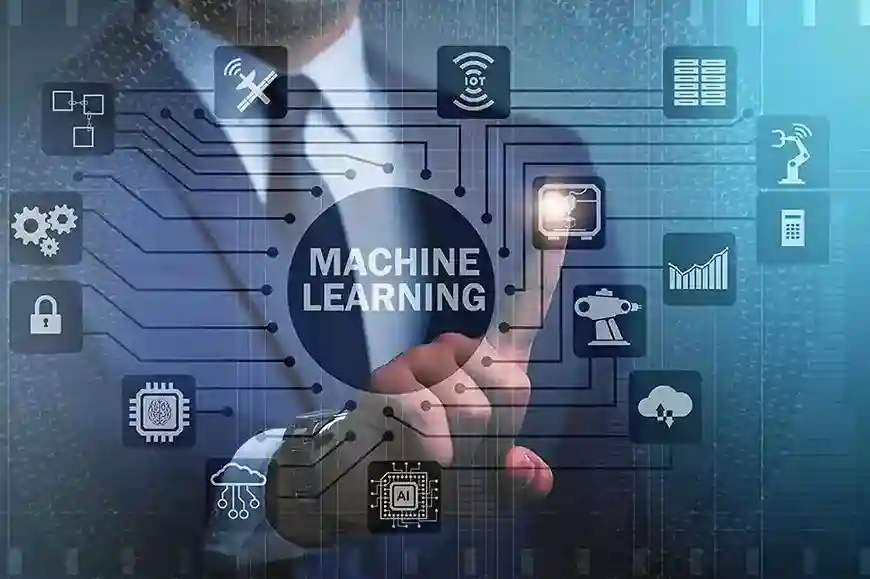
In this course you’ll learn clearly define an ML problems, Prepare data for effective ML applications, Survey available data resources and identify potential ML applications, Take a business need and turn it into a machine learning application with best machine learning course on udemy. This course will give you to do various tasks and it’s specially design for you to learn it and if you want to make a carrier in Machine Learning then this course is right for you
Skill you'll Gain
- Tenserflow
- Machine Learning
- Vertax ai
- Feature Engineering
- Cloud Computing
Course Modules
6 Hours to complete
What’s Include:
This course is for professionals who have heard the buzz around machine learning and want to apply machine learning to data analysis and automation. Whether finance, medicine, engineering, business or other domains, this course will introduce you to problem definition and data preparation in a machine learning project.
9 Hours to complete
What’s Include:
This course takes you from understanding the fundamentals of a machine learning project. Learners will understand and implement supervised learning techniques on real case studies to analyze business case scenarios where decision trees, k-nearest neighbours and support vector machines are optimally used. Learners will also gain skills to contrast the practical consequences of different data preparation steps and describe common production issues in applied ML.
11 Hours to complete
what’s Include:
This course is all about data and how it is critical to the success of your applied machine learning model. Completing this course will give learners the skills to:
11 Hours to complete
What Include:
This course synthesizes everything your have learned in the applied machine learning specialization. You will now walk through a complete machine learning project to prepare a machine learning maintenance roadmap. You will understand and analyze how to deal with changing data. You will also be able to identify and interpret potential unintended effects in your project. You will understand and define procedures to operationalize and maintain your applied machine learning model. By the end of this course you will have all the tools and understanding you need to confidently roll out a machine learning project and prepare to optimize it in your business context.
Course Description
This specialization is for professionals who have heard the buzz around machine learning and want to apply machine learning to data analysis and automation. Whether finance, medicine, engineering, business or other domains, this specialization will set you up to define, train, and maintain a successful machine learning application.
After completing all four courses, you will have gone through the entire process of building a machine learning project. You will be able to clearly define a machine learning problem, identify appropriate data, train a classification algorithm, improve your results, and deploy it in the real world. You will also be able to anticipate and mitigate common pitfalls in applied machine learning.
5. Advanced Machine Learning on Google Cloud Specialization
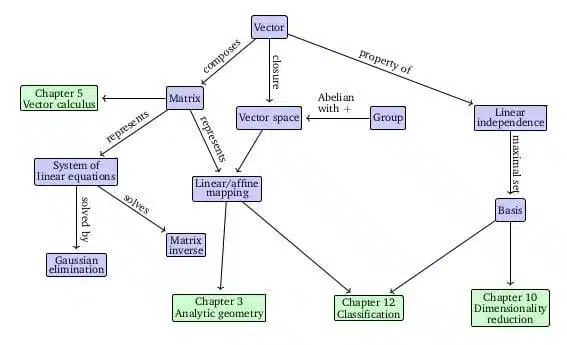
This course focus on Advanced Machine Learning topics using google cloud Platform where you will get hands-on experience. This course will give you a verity of tasks and skills these skills is special in this course you build a hybrid recommendation engine with user and content embeddings. Use reinforcement learning techniques for contextual bandits in the context of recommendations. Implement a collaborative filtering recommendation engine. After this course you’ll be ready in Advance level of Machine Learning.
Skills You'll Gain
- Tenserflow
- Estimator
- Advanced Machine Learning
- Convolutional Neural Network
Course Modules
18 Hours to complete
What’s Include:
Compare static versus dynamic training and inference
Manage model dependencies
Set up distributed training for fault tolerance, replication, and more
Export models for portability
18 Hours to complete
What’s Include:
Understand at a high-level the types of problems computer vision may solve
Understand some of the key concepts and model architectures typically used using computer vision
13 Hours to complete
what’s Include:
This course introduces the products and solutions to solve NLP problems on Google Cloud. Additionally, it explores the processes, techniques, and tools to develop an NLP project with neural networks by using Vertex AI and TensorFlow.
14 Hours to complete
What Include:
Devise a content-based recommendation engine.
Implement a collaborative filtering recommendation engine.
Build a hybrid recommendation engine with user and content embeddings.
Use reinforcement learning techniques for contextual bandits in the context of recommendations.
Course Description
This 5-course specialization focuses on advanced machine learning topics using Google Cloud Platform where you will get hands-on experience optimizing, deploying, and scaling production ML models of various types in hands-on labs. This specialization picks up where “Machine Learning on GCP” left off and teaches you how to build scalable, accurate, and production-ready models for structured data, image data, time-series, and natural language text. It ends with a course on building recommendation systems. Topics introduced in earlier courses are referenced in later courses, so it is recommended that you take the courses in exactly this order.
Applied Learning Project
This specialization incorporates hands-on labs using our Qwiklabs platform.
These hands on components will let you apply the skills you learn in the video lectures. Projects will incorporate topics such as Google Cloud Platform products, which are used and configured within Qwiklabs. You can expect to gain practical hands-on experience with the concepts explained throughout the modules.
4 Best Machine Learning Course on Udemy that's Knowledgeable for you
- Python for Machine Learning & Data Science Masterclass
- Machine Learning, Data Science and Generative AI with Python.
- Mathematical Foundations of Machine Learning
- Complete A.I. & Machine Learning, Data Science Bootcamp
The Complete Machine Learning Course with Python
Now Let's look at the folowing
1. Python for Machine Learning & Data Science Masterclass
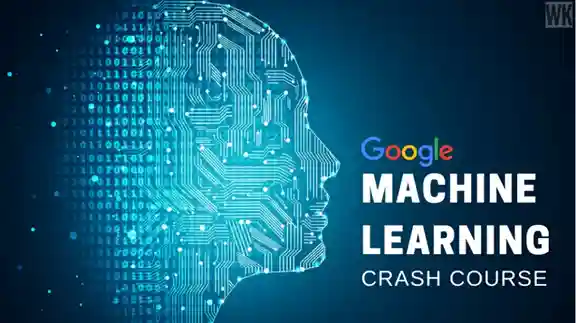
This course is for beginners and in this course you’ll be learn how to use data science and machine learning with Python and You will be able to analyze your own data sets and gain insights through data science and explore how to deploy your machine learning models as interactive APIs and same as a verity of skills that you will gain in this course this course add a verity of tasks that’s helpful to learn the course and after this course you’ll gain a much more skills and information about Machine Learning
Course Rating: 4.6 stars
Money-Back Guarantee: 30-Days
Requirement: Basic Python Knowledge
Cost: $74
Students: 108,894
Course includes
- 44 hours on-demand video
- 33 downloadable resources
- 4 coding exercises
- 6 articles
- Access on mobile and TV
- Certificate of completion
Course Modules
29 Mins to complete
5 Lectures
Lectures:
- Welcome to the Course!
- Course Overview Lecture
- Anaconda Python and Jupyter Install and Setup
- Anaconda Python and Jupyter Install and Setup
- Environment Setup
51 Mins to complete
6 Lectures
Lectures:
- OPTIONAL: Python Crash Course
- Python Crash Course – Part One
- Python Crash Course – Part Two
- Python Crash Course – Part Three
- Python Crash Course – Exercise Questions
- Python Crash Course – Exercise Solutions
10 Mins to complete
1 Lecture
Lectures:
- Machine Learning Pathway.
53 Mins to complete
6 Lecture
Lectures:
- Introduction to Numpy
- Numpy Array
- Numpy indexing and Selection
- Numpy Operations
- Numpy Exercises
- Numpy Exercises – Solutions
6 Hours, 26 Mins to complete
28 Lecture
Lectures:
- Introduction to Pandas
- Series – Part One
- Series – Part Two
- DataFrames – Part One – Creating a DataFrame
- DataFrames – Part Two – Basic Properties
- DataFrames – Part Three – Working with Columns
- DataFrames – Part Four – Working with Rows
- Pandas – Conditional Filtering
- Pandas – Useful Methods – Apply on Single Column
- Pandas – Useful Methods – Apply on Multiple Columns
- Pandas – Useful Methods – Statistical Information and Sorting
- Missing Data – Overview
- Missing Data – Pandas Operations
- GroupBy Operations – Part One
- GroupBy Operations – Part Two – MultiIndex
- Combining DataFrames – Concatenation
- Combining DataFrames – Inner Merge
- Combining DataFrames – Left and Right Merge
- Combining DataFrames – Outer Merge
- Pandas – Text Methods for String Data
- Pandas – Time Methods for Date and Time Data
- Pandas Input and Output – CSV File
- Pandas Input and Output – HTML Table
- Pandas Input and Output – Excel File
- Pandas Input and Output – SQL Database
- Pandas Pivot Tables
- Pandas Project Exercise Overvie
- Pandas Project Exercise Solutions
Course Modules
1 Hours, 51 Mins to complete
11 Lecture
Lectures:
- Introduction to Matplotlib
- Matplotlib Basics
- Matplotlib – Understanding the Figure Object
- Matplotlib – Implementing Figures and Axes
- Matplotlib – Figure Parameters
- Matplotlib subplots Functionalities
- Matplotlib Styling – Legends
- Matplotlib Styling – Colors and Styles
- Advanced Matplotlib Commands (Optional)
- Matplotlib Exercise Questions Overview
- Matplotlib Exercise Questions – Solutions
2 Hours, 538 Mins to complete
14 Lecture
Lectures:
- ntroduction to Seaborn
- Scatterplots with Seaborn
- Distribution Plots – Part One – Understanding Plot Types
- Distribution Plots – Part Two – Coding with Seaborn
- Categorical Plots – Statistics within Categories – Understanding Plot Types
- Categorical Plots – Statistics within Categories – Coding with Seaborn
- Categorical Plots – Distributions within Categories – Understanding Plot Types
- Categorical Plots – Distributions within Categories – Coding with Seaborn
- Seaborn – Comparison Plots – Understanding the Plot Types
- Seaborn – Comparison Plots – Coding with Seaborn
- Seaborn Grid Plots
- Seaborn – Matrix Plots
- Seaborn Plot Exercises Overview
- Seaborn Plot Exercises Solutions
1 Hours, 5 Mins to complete
4 Lecture
Lectures:
- Capstone Project Overview
- Capstone Project Solutions – Part One
- Capstone Project Solutions – Part Two
- Capstone Project Solutions – Part Three
49 Mins to complete
5 Lecture
Lectures:
- Introduction to Machine Learning Overview Section
- Why Machine Learning?
- Types of Machine Learning Algorithms
- Supervised Machine Learning Process
- Companion Book – Introduction to Statistical Learning
5 Hours, 5 Mins to complete
26 Lecture
Lectures:
- Introduction to Linear Regression Section
- Linear Regression-Algorithm History
- Linear Regression – Understanding Ordinary Least Squares
- Linear Regression – Cost Functions
- Linear Regression – Gradient Descent
- Python coding Simple Linear Regression
- Overview of Scikit-Learn and Python
- Linear Regression – Scikit-Learn Train Test Split
- Linear Regression – Scikit-Learn Performance Evaluation – Regression
- Linear Regression – Residual Plots
- Linear Regression – Model Deployment and Coefficient Interpretation
- Polynomial Regression – Theory and Motivation
- Polynomial Regression – Creating Polynomial Features
- Polynomial Regression – Training and Evaluation
- Bias Variance Trade-Off
- Polynomial Regression – Choosing Degree of Polynomial
- Polynomial Regression – Model Deployment
- Regularization Overview
- Feature Scaling
- Introduction to Cross Validation
- Regularization Data Setup
Course Description
When it comes to learning Python, Data Science, and Machine Learning, this is the most comprehensive course available online. Come learn about the future now with over 3 million students taught by Jose Portilla!
What does the course cover?
Greetings and welcome to the best machine learning course on udemy and Coursera in Data Science and Machine Learning! I’ve spent more than a year putting together what I think is the greatest path from zero to hero for data science and machine learning in Python, having taught over 2 million students!
This course is intended for students who have some basic Python knowledge and are eager to use it more extensively for Data Science and Machine Learning applications. A data scientist’s starting wage can easily exceed $150,000, so we’ve designed this course to help students acquire the skills that will make them highly employable in today’s job market.
Most other courses don’t cover advanced machine learning algorithms, which we do! Including cutting edge unsupervised learning techniques like DBSCAN and sophisticated regularization techniques.
2. Mathematical Foundations of Machine Learning
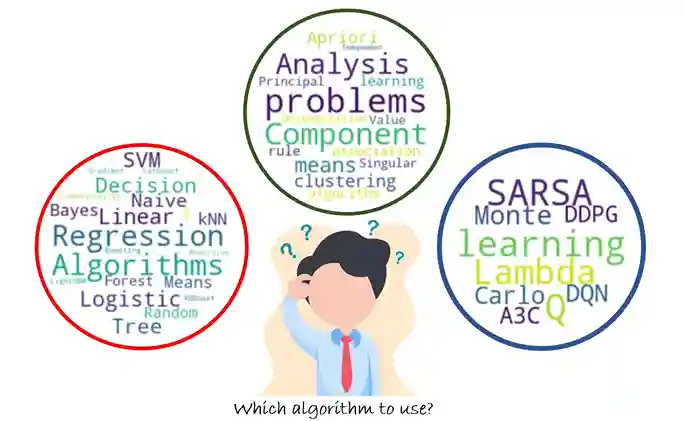
In this Course You’ll be learn a various types of Modules, skills and High-level tools like Scikit-learn and Keras make it simple to get started with data research. However, you have an endless amount of options when you learn the mathematics beneath the algorithms in these libraries. Knowing the arithmetic behind it all can help you have a significant influence throughout your career, from spotting modeling flaws to coming up with new and more potent solutions.
Course Rating: 4.6 stars
Money-Back Guarantee: 30-Days
Requirement: secondary school-level mathematics.
Cost: $12.99
Students: 122,461
Course includes
- 16.5 hours on-demand video
- Access on mobile and TV
- 3 articles
- Certificate of completion
Course Modules
1 Hour 45 Mins to complete
13 Lectures
Lectures:
- Introduction
- What Linear Algebra is
- Plotting a System of Linear Equations
- Linear Algebra Exercise
- Tensors
- Scalars
- Vectors and Vector
- Transposition
- Norms and Unit Vectors
- Basis, Orthogonal, and
- Orthonormal Vectors
- Matrix Tensors
- Generic Tensor Notation
- Exercises on Algebra Data
- Structures
- Learning Paths
55 Mins to complete
9 Lectures
Lectures:
- Segment Intro
- Tensor Transposition
- Basic Tensor Arithmetic, incl. the Hadamard Product
- Tensor Reduction
- The Dot Product
- Exercises on Tensor
- Operations
- Solving Linear Systems with Substitution
- Solving Linear Systems with Elimination
- Visualizing Linear Systems
1Hour 24 Mins to complete
9 Lecture
Lectures:
- Segment Intro
- The Frobenius Norm
- Matrix Multiplication
- Symmetric and Identity Matrices
- Matrix Multiplication Exercises
- Matrix Inversion
- Diagonal Matrices
- Orthogonal Matrices
- Orthogonal Matrix Exercise
2 Hour 12 Mins to complete
10 Lecture
Lectures:
- Segment Intro
- Applying Matrices
- Affine Transformations
- Eigenvectors and Eigenvalues
- Matrix Determinants
- Determinants of Larger Matrices
- Determinant Exercises
- Determinants and Eigenvalues
- Eigendecomposition
- Eigenvector and Eigenvalue
- Applications
1 Hours, 15 Mins to complete
8 Lecture
Lectures:
- Segment Intro
- Singular Value Decomposition
- Data Compression with SVD
- The Moore-Penrose Pseudoinverse
- The Trace Operator
- Principal Component Analysis (PCA)
- Resources for Further Study of Linear Algebra
Course Modules
1 Hours, 8 Mins to complete
8 Lecture
Lectures:
- Segment Intro
- Intro to Differential Calculus
- Intro to Integral Calculus
- The Method of Exhaustion
- Calculus of the Infinitesimals
- Calculus Applications
- Calculating Limits
- Exercises on Limits
1 Hours, 26 Mins to complete
14 Lecture
Lectures:
- Segment Intro
- The Delta Method
- How Derivatives Arise from Limits
- Derivative Notation
- The Derivative of a Constant
- The Power Rule
- The Constant Multiple Rule
- The Sum Rule
- Exercises on Derivative Rules
- The Product Rule
- The Quotient Rule
- The Chain Rule
- Advanced Exercises on Derivative Rules
- The Power Rule on a Function Chain
1 Hours, 17 Mins to complete
6 Lecture
Lectures:
- Segment Intro
- What Automatic Differentiation Is
- Autodiff with PyTorch
- Autodiff with TensorFlow
- The Line Equation as a Tensor Graph
- Machine Learning with Autodiff
49 Mins to complete
5 Lecture
Lectures:
- Segment Intro
- What Partial Derivatives Are
- Partial Derivative Exercises
- Calculating Partial Derivatives with Autodiff
- Advanced Partial Derivatives
- Advanced Partial-Derivative Exercises
- Partial Derivative Notation
- The Chain Rule for Partial Derivatives
- Exercises on the Multivariate Chain Rule
- Point-by-Point Regression
- The Gradient of Quadratic Cost
- Descending the Gradient of Cost
- Backpropagation
- Higher-Order Partial Derivatives
- The Gradient of Mean Square Error
1 Hours, 4 Mins to complete
13 Lecture
Lectures:
- Segment Intro
- Binary Classification
- The Confusion Matrix
- The Receiver-Operating Characteristic (ROC) Curve
- The Integral Calculus Rules
- Indefinite Integral Exercises
- Definite Integrals
- Numeric Integration with Python
- Definite Integral Exercise
- Finding the Area Under the ROC Curve
- Resources for the Further Study of Calculus
- Congratulations!
- What Integral Calculus
Course Description
Machine learning and data science are based on mathematics. Therefore, you need to have a working knowledge of the most pertinent arithmetic in order to be the best data scientist you can be.
Scikit-learn and Keras are two high-level packages that make it simple to get started in data research. But you can do so much more if you know the mathematics underlying the algorithms in these libraries. Over the course of your career, knowing the math underlying it all can significantly boost the influence you can make, from spotting modeling difficulties to coming up with new and more powerful solutions.
This best machine learning course on udemy, taught by deep learning pioneer Dr. Jon Krohn, gives students a solid understanding of the mathematics, specifically calculus and linear algebra, that underpin machine learning algorithms and data Science Modules.
3.Complete A.I.& Machine Learning, Data Science Bootcamp
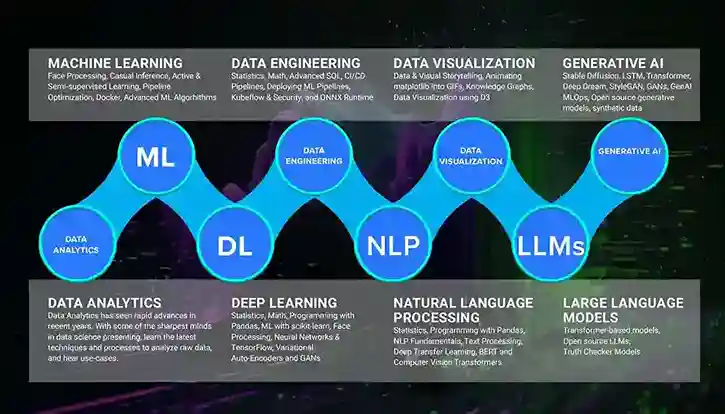
In this Course You’ll be Learn Data Science, Data Analysis, Machine Learning (Artificial Intelligence) and Python with Tensorflow. You also gain All type of knowledge on Machine Learning and various types of skills With the most recent and cutting-edge Data Science course available on Udemy, you can learn Machine Learning and Data Science from beginning, increase your chances of getting hired, and have fun while doing it (we use the latest version of Python, Tensorflow 2.0 and other libraries)
Course Rating: 4.6 stars
Money-Back Guarantee: 30-Days
Requirement: Linux/Windows/Mac.
Cost: $12.99
Students: 124,178
Course Modules
16 Mins to complete
5 Lectures
Lectures:
- Course Outlines
- Your First Day
- Join Our Online Classroom!
- Exercise: Meet Your Classmates & Instructor
- Asking Questions + Getting Help
45 Mins to complete
11 Lectures
Lectures:
- Exercise: YouTube Recommendation Engine
- Types of Machine Learning
- Are You Getting It Yet?
- What Is Machine Learning? Round 2
- Section Review
- Monthly Coding Challenges, Free Resources and Guides
- What is Machine learning
- AI/Machine Learning/Data Science
- ZTM Resources
- Machine Learning Playground
- Who did we get here
1Hour 8 Mins to complete
15 Lecture
Lectures:
- Section Overview
- Introducing Our Framework
- Types of Machine Learning Problems
- Types of Data
- Types of Evaluation
- Features In Data
- Modelling – Splitting Data
- Modelling – Picking the Model
- Modelling – Tuning
- Modelling – Comparison
- Overfitting and Underfitting Definitions
- Experimentation
- Tools We Will Use
- Optional: Elements of AI
- 6 step Machine Learning Framework
4 Mins to complete
3 Lecture
Lectures:
- The 2 Paths
- Python + Machine Learning Monthly
- Endorsements On Linkedin
1 Hours, 15 Mins to complete
8 Lecture
Lectures:
- Selection Overview
- Introducing Our Tools
- What is Conda?
- Conda Environments
- Mac Environment Setup
- Mac Environment Setup 2
- Windows Environment Setup
- Windows Environment Setup 2
- Linux Environment Setup
- Sharing your Conda Environment
- Jupyter Notebook Walkthrough
- Jupyter Notebook Walkthrough 2
- Jupyter Notebook Walkthrough 3
Course Modules
1 Hours, 39 Mins to complete
15 Lecture
Lectures:
- Section Overview
- Downloading Workbooks and Assignments
- Pandas Introduction
- Series, Data Frames and CSVs
- Data from URLs
- Quick Note: Upcoming Videos
- Describing Data with Pandas
- Selecting and Viewing Data with Pandas
- Quick Note: Upcoming Videos
- Selecting and Viewing Data with Pandas Part 2
- Manipulating Data
- Manipulating Data 2
- Manipulating Data 3
- Assignment: Pandas Practice
- How To Download The Course Assignments
2 Hours, 11 Mins to complete
19 Lecture
Lectures:
- Section Overview
- NumPy Introduction
- Quick Note: Correction In Next Video
- NumPy DataTypes and Attributes
- Creating NumPy Arrays
- NumPy Random Seed
- Viewing Arrays and Matrices
- Manipulating Arrays
- Manipulating Arrays 2
- Standard Deviation and Variance
- Reshape and Transpose
- Dot Product vs Element Wise
- Exercise: Nut Butter Store Sales
- Comparison Operators
- Sorting Arrays
- Turn Images Into NumPy Arrays
- Exercise: Imposter Syndrome
- Assignment: NumPy Practice
- Optional: Extra NumPy resources
2 Hours, 18 Mins to complete
20 Lecture
Lectures:
- Section Overview
- Matplotlib Introduction
- Importing And Using Matplotlib
- Anatomy Of A Matplotlib Figure
- Scatter Plot And Bar Plot
- Histograms And Subplots
- Subplots Option 2
- Quick Tip: Data Visualizations
- Plotting From Pandas DataFrames
- Quick Note: Regular Expressions
- Plotting From Pandas DataFrames 2
- Plotting from Pandas DataFrames 3
- Plotting from Pandas DataFrames 4
- Plotting from Pandas DataFrames 5
- Plotting from Pandas DataFrames 6
- Plotting from Pandas DataFrames 7
- Customizing Your Plots
- Customizing your Plot 2
- Saving And Sharing Your Plots
- Assignment: Matplotlib Practice
7 Hours 58 Mins to complete
52 Lecture
Lectures:
- Section Overview
- Scikit-learn Introduction
- Quick Note: Upcoming Video
- Refresher: What Is Machine Learning?
- Quick Note: Upcoming Videos
- Typical scikit-learn Workflow
- Optional: Debugging Warnings In Jupyter
- Getting Your Data Ready: Splitting Your Data
- Quick Tip: Clean, Transform, Reduce
- Getting Your Data Ready: Convert Data To Numbers
- Note: Update to next video (OneHotEncoder can handle NaN/None values)
- Getting Your Data Ready: Handling Missing Values With Pandas
- Extension: Feature Scaling
- Note: Correction in the upcoming video (splitting data)
- Getting Your Data Ready: Handling Missing Values With Scikit-learn
- NEW: Choosing The Right Model For Your Data
- NEW: Choosing The Right Model For Your Data 2 (Regression)
- Quick Note: Decision Trees
- Quick Tip: How ML Algorithms Work
- Choosing The Right Model For Your Data 3 (Classification)
- Fitting A Model To The Data
- Making Predictions With Our Model
- NEW: Making Predictions With Our Model (Regression)
- NEW: Evaluating A Machine Learning Model (Score) Part 1
- NEW: Evaluating A Machine Learning Model (Score) Part 2
- Evaluating A Machine Learning Model 2 (Cross Validation)
- Evaluating A Classification Model 1 (Accuracy)
- Evaluating A Classification Model 2 (ROC Curve)
- Evaluating A Classification Model 3 (ROC Curve)
- Reading Extension: ROC Curve + AUC
- Evaluating A Classification Model 4 (Confusion Matrix)
- NEW: Evaluating A Classification Model 5 (Confusion Matrix)
- Evaluating A Classification Model 6 (Classification Report)
- NEW: Evaluating A Regression Model 1 (R2 Score)
- NEW: Evaluating A Regression Model 2 (MAE)
- NEW: Evaluating A Regression Model 3 (MSE)
- Machine Learning Model Evaluation
- NEW: Evaluating A Model With Cross Validation and Scoring Parameter
- NEW: Evaluating A Model With Scikit-learn Functions
- Improving A Machine Learning Model
- Tuning Hyperparameters
- Tuning Hyperparameters 2
- Tuning Hyperparameters 3
- Note: Metric Comparison Improvement
- Quick Tip: Correlation Analysis
- Saving And Loading A Model
- Saving And Loading A Model 2
- Putting It All Together
- Putting It All Together 2
- Scikit-Learn Practice
1 Mins to complete
1 Lecture
Lectures:
- Milestone Projects!
Course Description
Become an expert in machine learning, data science, and artificial intelligence! Enroll the best machine learning course on udemy taught by industry specialists who have actually worked for significant firms in Silicon Valley and Toronto, and join a community of over 900,000 engineers. Currently employed by Google, Tesla, Amazon, Apple, IBM, JP Morgan, Meta, and other leading tech organizations are alumni of Andrei’s courses. It’s going to be zero to mastery!
We will develop several real-world projects to add to your portfolio while introducing you to all of the contemporary abilities of a Data Scientist in this extensive and project-based course. All of the workbooks, templates, and code (Jupyter Notebooks) will be available to you on Github so you can immediately use them for your portfolio! Having all the tools you need in one location, understanding the newest trends, and gaining the practical skills that companies value—we think this course addresses the main obstacle to getting into the Data Science and Machine understanding profession.
4. The Complete Machine Learning Course with Python
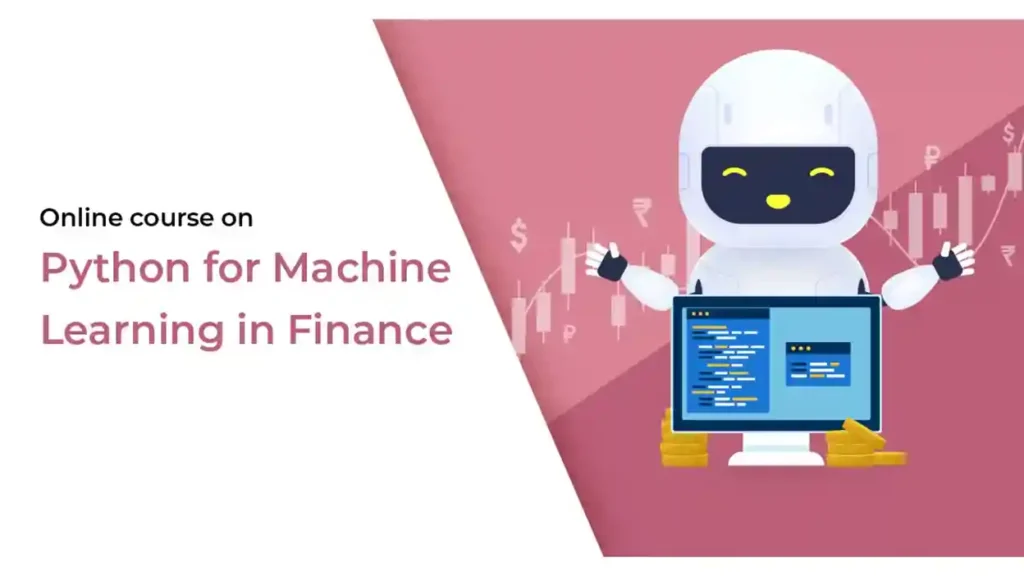
This course focus on Advanced Machine Learning topics using Modules where you will get hands-on experience. This course will give you a verity of tasks and skills these skills is special in this course you build a hybrid recommendation engine with user and content embeddings. Use reinforcement learning techniques for contextual bandits in the context of recommendations. Implement a collaborative filtering recommendation engine. After this course you’ll be ready in Advance level of Machine Learning.
Course Rating: 4.3 stars
Money-Back Guarantee: 30-Days
Requirement: Good understanding of linear algebra Cost: $12.99
Students: 40,582
Course Modules
5 Mins to complete
3 Lectures
Lectures:
- What Dose the Course Cover
- How to Succeed in This Cours
- Project Files and Resources
57 Mins to complete
6 Lectures
Lectures:
- Installing Application and Creating Environment
- Hello World
- Iris Project 1: Working with Error Messages
- Iris Project 2: Reading CSV Data into Memory
- Iris Project 3: Loading data from Seaborn
- Iris Project 4: Visualization
4 Hour 6 Mins to complete
19 Lecture
Lectures:
- Scikit-Learn
- EDA
- Correlation Analysis and Feature Selection
- Correlation Analysis and Feature Selection
- Linear Regression with Scikit-Learn
- Five Steps Machine Learning Process
- Robust Regression
- Evaluate Regression Model Performance
- Multiple Regression 1
- Multiple Regression 2
- Regularized Regression
- Polynomial Regression
- Dealing with Non-linear Relationships
- Feature Importance
- Data Preprocessing
- Variance-Bias Trade Off
- Learning Curve
- Cross Validation
- CV Illustration
1 Hour 44 Mins to complete
12 Lecture
Lectures:
- Logistic Regression
- Introduction to Classification
- Understanding MNIST
- SGD
- Performance Measure and Stratified k-Fold
- Confusion Matrix
- Precision
- Recall
- f1
- Precision Recall Tradeoff
- Altering the Precision Recall Tradeoff
- ROC
39 Mins to complete
5 Lecture
Lectures:
- Support Vector Machine (SVM) Concepts
- Linear SVM Classification
- Polynomial Kernel
- Radial Basis Function
- Support Vector Regression
Course Modules
1 Hours, 5 Mins to complete
7 Lecture
Lectures:
- Introduction to Decision Tree
- Training and Visualizing a Decision Tree
- Visualizing Boundary
- Tree Regression, Regularization and Over Fitting
- End to End Modeling
- Project HR
- Project HR with Google Colab
1 Hours, 12 Mins to complete
10 Lecture
Lectures:
- Ensemble Learning Methods Introduction
- Bagging
- Random Forests and Extra-Trees
- AdaBoost
- Gradient Boosting Machine
- XGBoost Installation
- XGBoost
- Project HR – Human Resources Analytics
- Ensemble of Ensembles Part 1
- Ensemble of ensembles Part 2
39 Mins to complete
4 Lecture
Lectures:
- kNN Introduction
- Project Cancer Detection
- Additional Materials
- Project cancer Detection Part-1
37 Mins to complete
7 Lecture
Lectures:
- Dimensionality Reduction Concept
- PCA Introduction
- Project Wine
- Kernel PCA
- Kernel PCA Demo
- LDA vs PCA
- Project Abalone
25 Mins to complete
2 Lecture
Lectures:
- Clustering
- k_Means Clustering
Course Description
With a project-based approach, this best machine learning course on udemy aims to give you the tools to create strong machine learning models. By the conclusion, you’ll have a portfolio of twelve projects spanning a range of applications, and you’ll be well on your way to applying machine learning to solve problems in your personal or professional life or starting a lucrative career in the field.

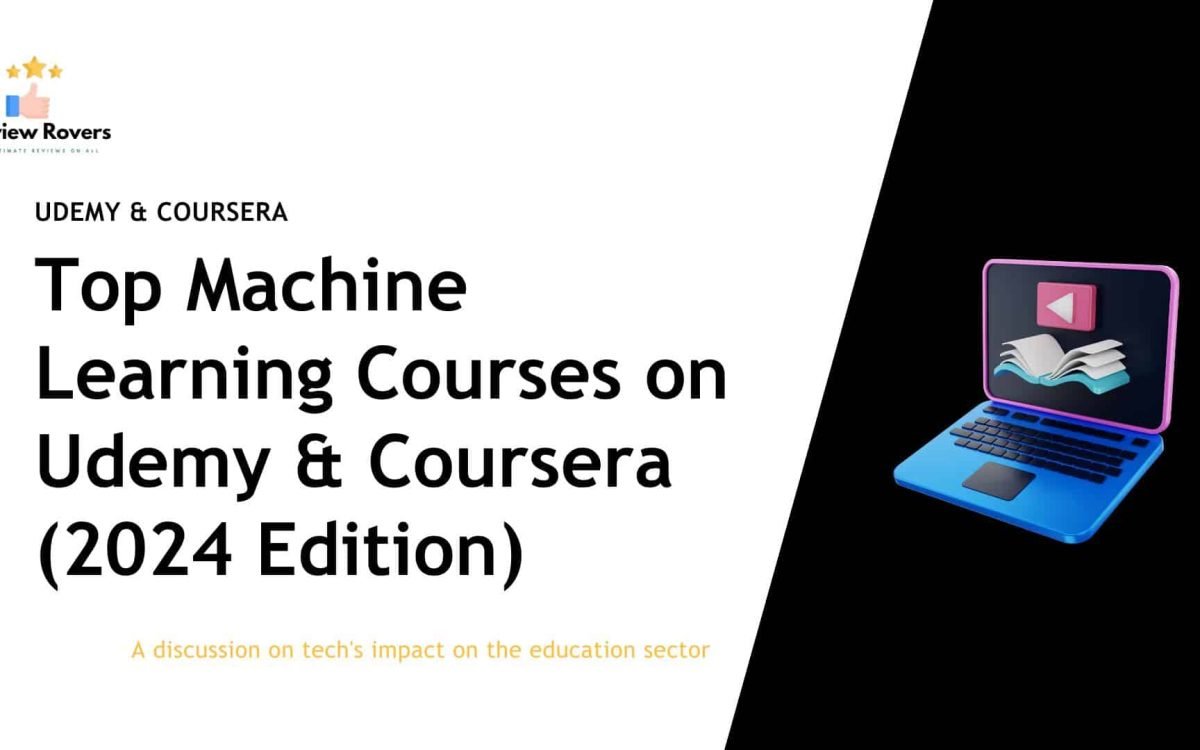












2 Comments
Your comment is awaiting moderation.
[…] 2024, customer support is being transformed by AI chatbots that instead of waiting for a problem, they first identify them. They use information from […]
[…] marketing refers to the use of online platforms and technologies to promote products and services. Among the strategies included in this approach are SEO, content marketing, social media marketing […]
[…] can’t expect the website to be SEO-ready just by purchasing a domain name and creating its own If it was such an easy process as this straightforward one makes […]